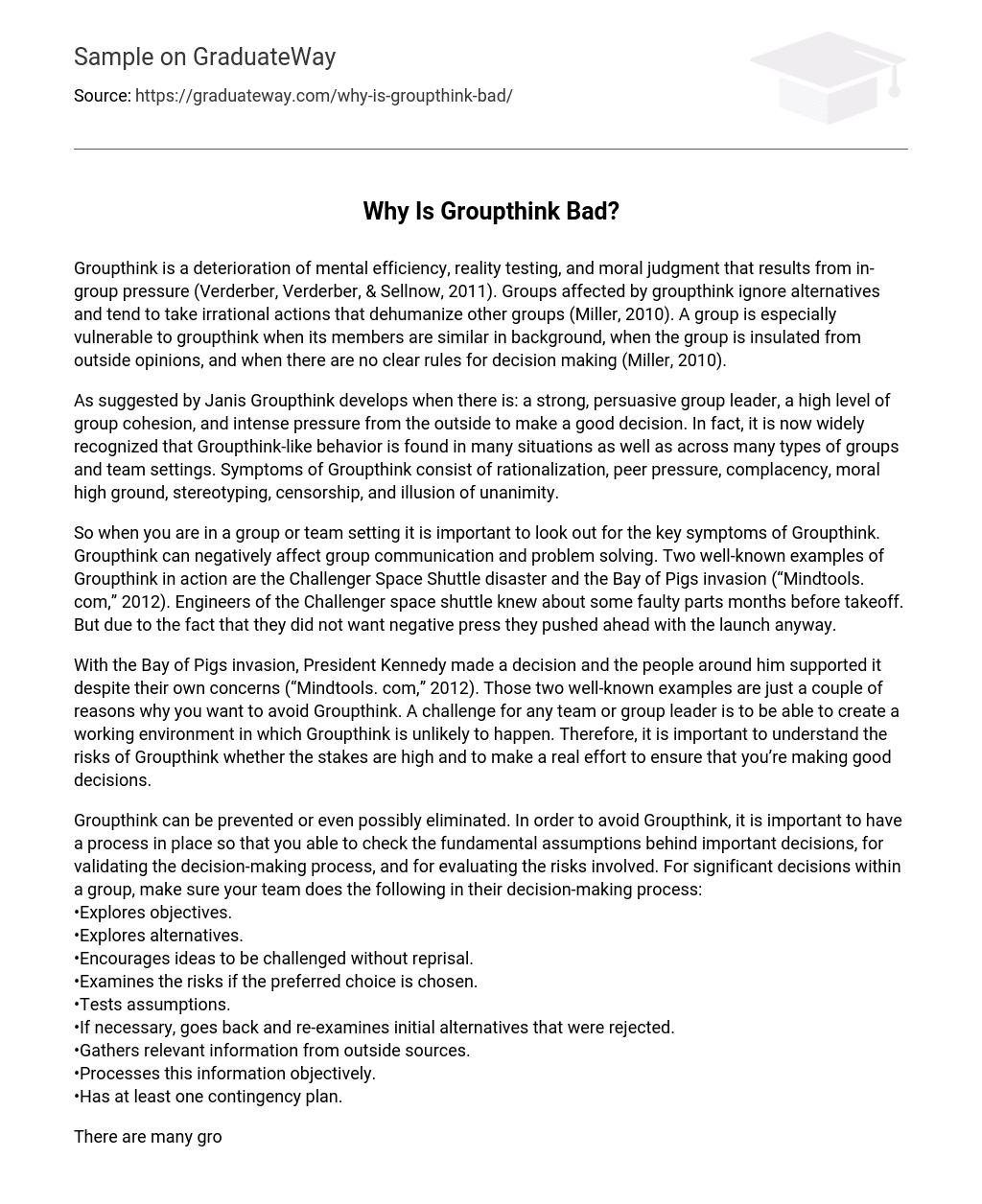Groupthink is a deterioration of mental efficiency, reality testing, and moral judgment that results from in-group pressure (Verderber, Verderber, & Sellnow, 2011). Groups affected by groupthink ignore alternatives and tend to take irrational actions that dehumanize other groups (Miller, 2010). A group is especially vulnerable to groupthink when its members are similar in background, when the group is insulated from outside opinions, and when there are no clear rules for decision making (Miller, 2010).
As suggested by Janis Groupthink develops when there is: a strong, persuasive group leader, a high level of group cohesion, and intense pressure from the outside to make a good decision. In fact, it is now widely recognized that Groupthink-like behavior is found in many situations as well as across many types of groups and team settings. Symptoms of Groupthink consist of rationalization, peer pressure, complacency, moral high ground, stereotyping, censorship, and illusion of unanimity.
So when you are in a group or team setting it is important to look out for the key symptoms of Groupthink. Groupthink can negatively affect group communication and problem solving. Two well-known examples of Groupthink in action are the Challenger Space Shuttle disaster and the Bay of Pigs invasion (“Mindtools. com,” 2012). Engineers of the Challenger space shuttle knew about some faulty parts months before takeoff. But due to the fact that they did not want negative press they pushed ahead with the launch anyway.
With the Bay of Pigs invasion, President Kennedy made a decision and the people around him supported it despite their own concerns (“Mindtools. com,” 2012). Those two well-known examples are just a couple of reasons why you want to avoid Groupthink. A challenge for any team or group leader is to be able to create a working environment in which Groupthink is unlikely to happen. Therefore, it is important to understand the risks of Groupthink whether the stakes are high and to make a real effort to ensure that you’re making good decisions.
Groupthink can be prevented or even possibly eliminated. In order to avoid Groupthink, it is important to have a process in place so that you able to check the fundamental assumptions behind important decisions, for validating the decision-making process, and for evaluating the risks involved. For significant decisions within a group, make sure your team does the following in their decision-making process:
•Explores objectives.
•Explores alternatives.
•Encourages ideas to be challenged without reprisal.
•Examines the risks if the preferred choice is chosen.
•Tests assumptions.
•If necessary, goes back and re-examines initial alternatives that were rejected.
•Gathers relevant information from outside sources.
•Processes this information objectively.
•Has at least one contingency plan.
There are many group techniques that can help with this. By using one or more of these techniques to accomplish aspects of the group’s work, you will vary the group’s ways of working, and therefore your group will guard against Groupthink and help make better decisions.





